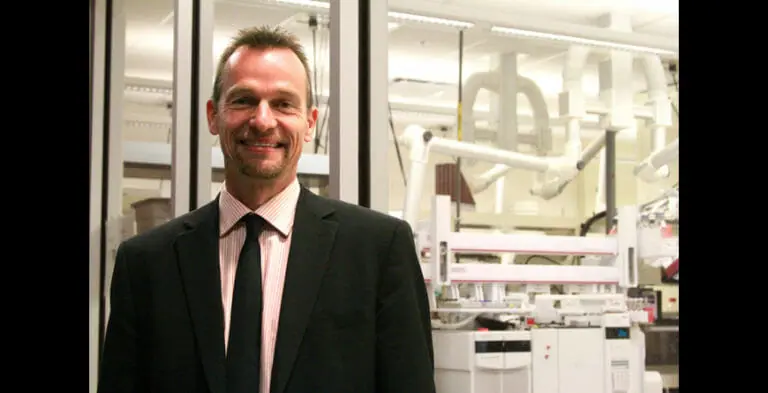Biodesign Institute

New study shows that a commonly used agricultural herbicide crosses the blood-brain barrier
Researchers explore possible effects in the brain Neurodegenerative illnesses, such as Alzheimer’s disease, are among the most perplexing in medical science. The underlying causes of such diseases range from genetic

Climate change may be culprit in Antarctic fish disease outbreak
In a new study, University of Oregon (UO) researchers join Arizona State University virologist Arvind Varsani to investigate a parasitic outbreak in the Antarctic.

Designer neurons offer new hope for treatment of Parkinson’s disease
Neurodegenerative diseases damage and destroy neurons, ravaging both mental and physical health. Parkinson’s disease, which affects over 10 million people worldwide, is no exception. The most obvious symptoms of Parkinson’s

Artificial cell membrane channels composed of DNA can be opened and locked with a key
Technique opens new possibilities for smart drug delivery and other applications Just as countries import a vast array of consumer goods across national borders, so living cells are engaged in

PhD student published in computer science journal
Kirtus Leyba, a computer science PhD student working in the Biodesign Center for Biocomputing, Security and Society recently had his work published in the journal Networking and Internet Architecture.

Antibiotic and antiretroviral drug effects on breast milk are explored for mothers living with HIV
Infants carry a vast assemblage of bacteria, viruses and fungi in their guts. Combined, these microbes make up a complex ecology known as the gut microbiome, which plays a major

Wastewater provides a planet-wide laboratory for the study of human health
Of the many contemporary conveniences often taken for granted in developed countries, modern sanitation may be among the most important. A new study suggests that wastewater infrastructure may provide societal

New astrobiology research predicts life 'as we don't know it'
The search for alien life has been restricted to using life on Earth as the reference, essentially looking for “life as we know it” beyond Earth. For astrobiologists looking for

Lost in the moss: ASU scientists answer key questions regarding photosynthesis evolution
A team of scientists from Arizona State University has taken a significant step closer to unlocking the secrets of photosynthesis, by determining the structure of a very large photosynthetic supercomplex

Working toward advances in carbon capture to turn the tide on climate change
As global challenges go, significantly reducing the amount of harmful greenhouse gases that have accumulated in the Earth’s atmosphere and oceans is most certainly among the most daunting. Those gases,

Live wire: New research on nanoelectronics
Proteins are among the most versatile and ubiquitous biomolecules on earth. Nature uses them for everything from building tissues to regulating metabolism to defending the body against disease. Now, a

ASU researchers named Senior Members of the National Academy of Inventors
The National Academy of Inventors (NAI) has named Arizona State University Deputy Director Stephen Munk and professor Bertram Jacobs to the February 2022 class of Senior Members. This coveted distinction within NAI, an international organization, recognizes engineers,